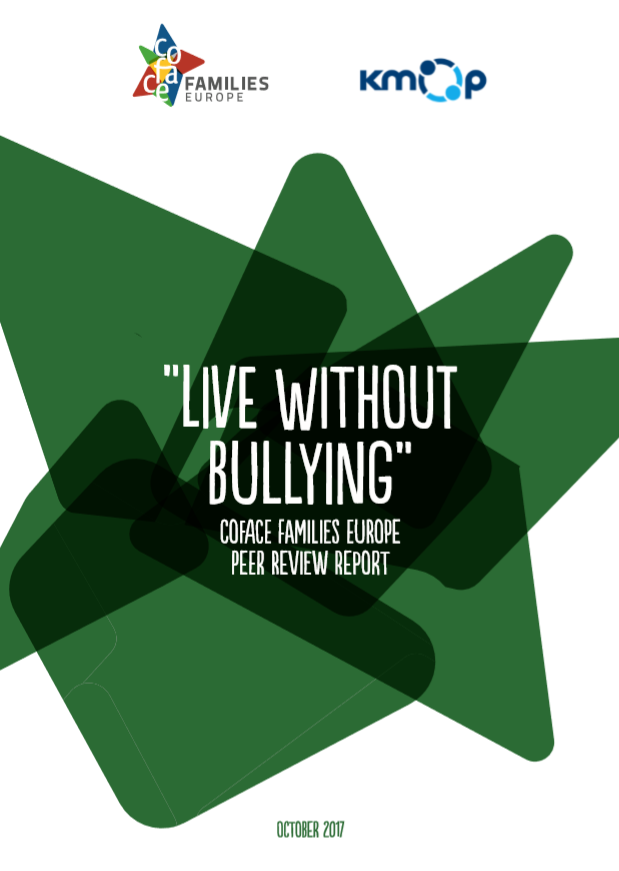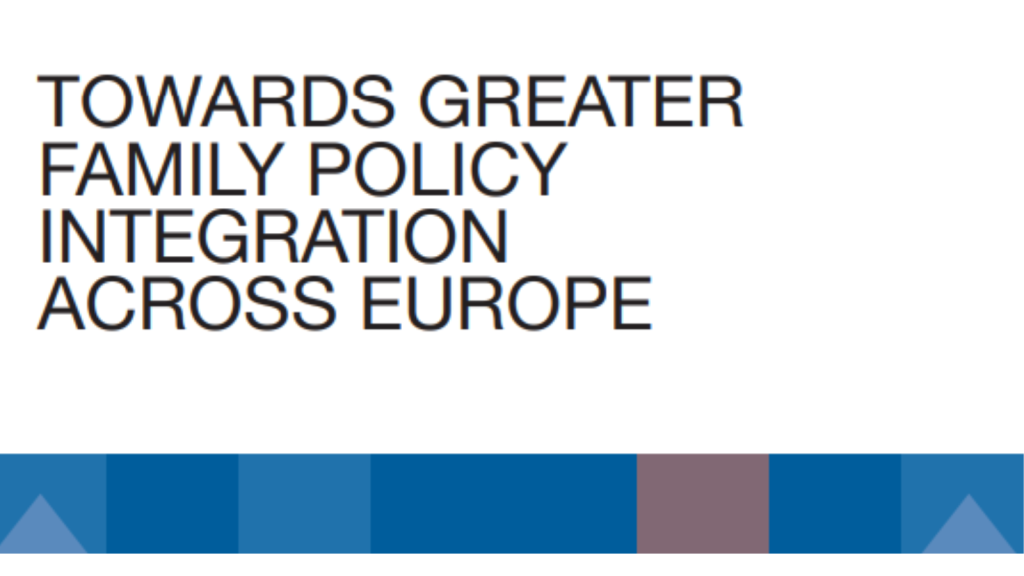COFACE Families Europe, coordinated a peer review of Live Without Bullying, a platform created by KMOP Family & Childcare Centre. COFACE and KMOP organised and convened a two-day peer review meeting in Athens, Greece on September 14-15, 2017. The meeting was supplemented by an independent expert review initiated by COFACE and performed by Digital Parenting Consulting. The COFACE peer reviewers and the independent expert commended KMOP for the development of the Live Without Bullying platform to tackle bullying in schools and offered a few recommendations to further improve the scope, reachability and quality of the platform.
Challenges
- Families clearly have a responsibility and role to play in preventing and addressing bullying. But they also need support.
- We talk a lot of respect of human rights, but children are not very aware of their rights, and neither are adults. This needs to be addressed.
- There is no common European definition of cyber-bullying. Moreover, the boundaries are not always clear between bullying, teasing… the reality is always more complex than the theory, which sometimes makes it difficult to take action.
- Social and emotional learning were discussed, and the importance of teaching children about life skills, respect of others, diversity, and how to deal with their emotions, which led to discussions about the need to teach children about their online emotions.
- Nothing is black and white. There are pros and cons of technology. Technology can be very empowering, but not everyone is connected and a digital divide still persists today. There are pros and cons of anonymity. Anonymity is essential to protect the right to privacy, but it also depends on the purpose of anonymity use (e.g. to protect yourself versus to attack others). Anonymity needs to be taught to children.
Actions needed
- Technology is both part of the problem and part of the solution. The problem is not technology per se – it is the way we use the technology that is the problem. We need to empower people to harness technology positively.
- The holistic approach adopted by the “Live Without Bullying” platform is the ideal starting point, namely working not only with schools, children (victims, perpetrators, bystanders), teachers, but also with families, the media, the police, and others.
- Human rights need to be mainstreamed throughout education, as the starting point, creating a human rights culture, linked to real-life experiences.
- The best way to ensure maximum impact on reducing bullying/cyber-bullying is through a mix of both targeted and general actions: direct support to victims, parents, teachers, but also mediation services and general prevention programmes.
- Wider factors and forces at work: digitalisation, discrimination, culture, stereotypes, media, advertising, etc. We need to build bridges with these stakeholders, including industry (e.g. the creators of media platforms, technological devices), to make them understand they have a role to play in addressing bullying.
The Peer Review report “Live Without Bullying” is available here
Hashtag of the publication #LiveWithoutBullying





